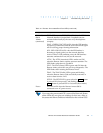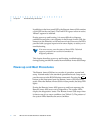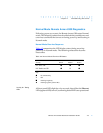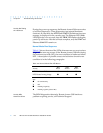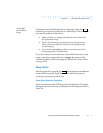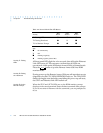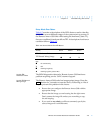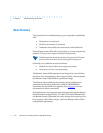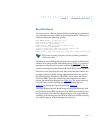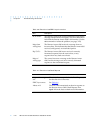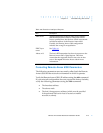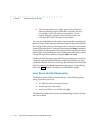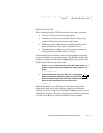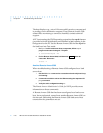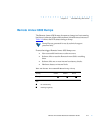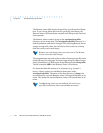
4-11Remote Annex 6300 Hardware Installation Guide
Chapter 4 Troubleshooting Procedures
Boot Error Report
If an error occurs, a Remote Annex 6300 boot error report is generated
only if the Remote Annex 6300 has opened the boot file. The report is
displayed using the following format:
BOOT ERROR REPORT (for BFS files only)
Boot attempt from host nn.nn.nn.nn:
Errors from Last Open Request:
0 ARP errors 0 ERPC layer errors 0 Aborts rx’d
Errors from Last Read Request:
0 Msgs w/ wrong size 0 ERPC layer errors 0 Aborts rxd
Errors from Last ERPC Layer Invocation:
0 H/W errors 1 Msgs from wrong host 0 Rsp T/O’s 0 Msgs of wrong type
TFTP error reporting complies with the standard, predefined
TFTP error codes.
The Remote Annex 6300 generates a boot error report for the Internet
address from which it tried, and failed, to boot.
Table 4-7 contains a
description of the Errors from the Last Read Request; and
Table 4-6
contains a description of the Errors from Last ERPC Layer Invocation.
The error count pinpoints the error that caused the boot failure. For
example, if the boot failed during a Read Request due to excessive
Expedited Remote Procedure Call (ERPC) layer errors, the Errors
from Last ERPC Layer Invocation lists only errors that occurred
during the failed Read Request (see
Table 4-6). The report does not
list errors that occurred during any other Read Request (see
Table 4-7) or during the Open Request (see Table 4-8).
The Open Request and the Read Request layers communicate with
the block file server (BFS) on the host. The ERPC layer resides below
the Open Request and the Read Request layers. It is responsible for
sending a given message to a specific host UDP port, and for receiving
the correct response to that message from the port.



